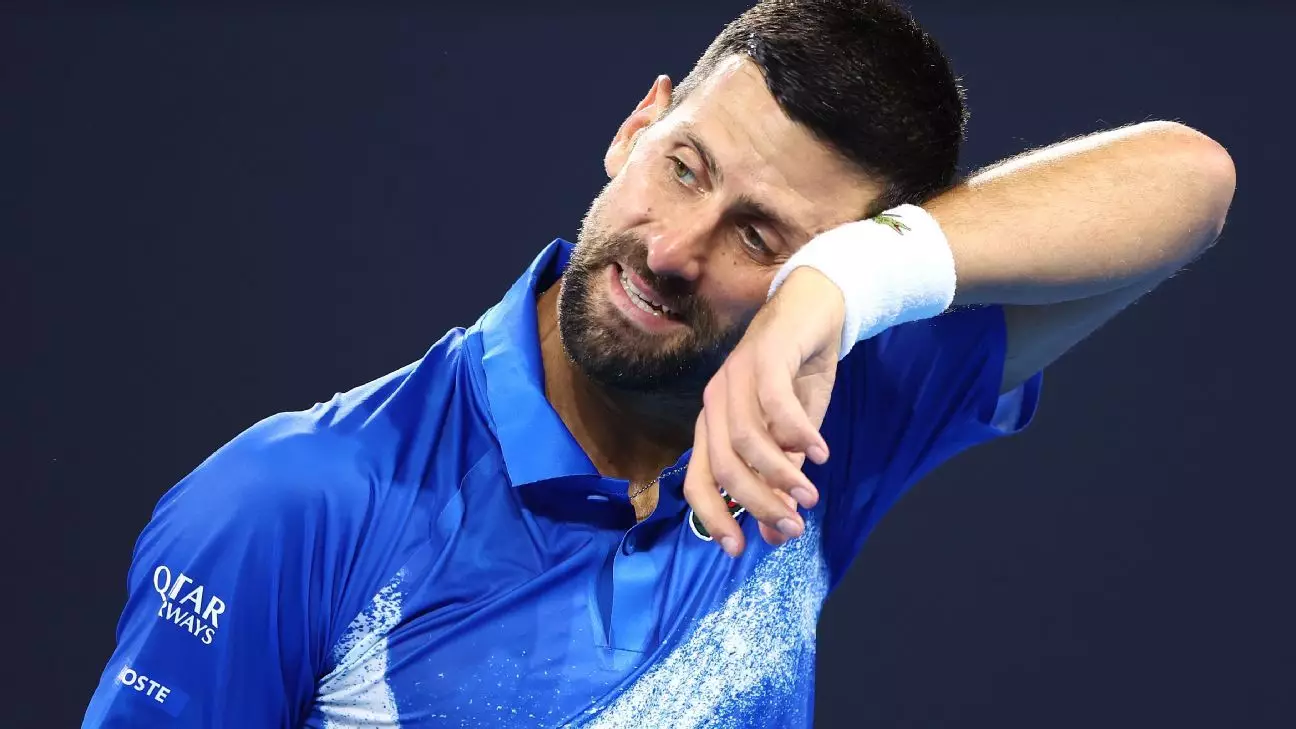Novak Djokovic, a stalwart of men’s tennis, has recently opened up about the emotional residue from his tumultuous experience in Australia three years ago. The 24-time Grand Slam champion, who was infamously deported from Melbourne in 2022 due to his unvaccinated status against COVID-19, wrestles with what he terms a “trauma” each time he sets foot in the country. His ordeal encapsulated not only a fierce legal battle but also highlighted the extreme measures that governments took to tackle the pandemic.
Djokovic, who was barred from defending his Australian Open title in 2022 amidst this controversy, recounted his time in a detention hotel, underscoring a sense of vulnerability and uncertainty that accompanied his interactions with Australian authorities. Such experiences can deeply affect an athlete’s mental state, regardless of their prowess on the court. Djokovic’s story serves as a reminder of how external factors, such as public health policies and international laws, can encroach upon the personal lives of athletes, fundamentally shaking their sense of security.
Returning to Australia last year, Djokovic managed to clinch victory at the Australian Open, an event that he had dominated with ten titles prior to his deportation. However, the emotional baggage from his previous visit continues to loom large. “Every time I approached passport control, I felt a twinge of anxiety,” he explained in an interview with Melbourne’s Herald Sun. This statement starkly illustrates how deeply traumatic experiences can imprint themselves on an individual, lingering long after the events have unfolded.
Such raw honesty brings to light the often-overlooked psychological toll that professional sports can impose. An athlete is regularly faced with the dual challenge of excelling in their sport while navigating their personal tumult. In Djokovic’s case, the fear of being detained once again surfaces each time he navigates the airport in Australia. This mental game is perhaps as challenging as facing his opponents on the court.
Despite the psychological scars, Djokovic asserts that he does not harbor resentment towards the Australian government or its policies. His resilient spirit shines through as he emphasizes the importance of moving forward, as demonstrated by his success the following year. “I don’t hold a grudge,” he stated, reflecting a level of emotional maturity that transcends the bitterness of past experiences. Winning the tournament under such emotional duress undoubtedly adds another layer of significance to his victory, showcasing resilience and determination.
The narrative of Djokovic’s journey is not merely about personal accomplishment; it also serves as a crucial reminder of the human element in sports. The intersection of sportsmanship, health, and governmental policies casts a shadow on the lives of athletes, as seen in Djokovic’s experience. As the Australian Open approaches, Djokovic confronts not just his opponents on the court but also the haunting memories tied to his history in Melbourne, emphasizing the complex interplay of triumph and trauma that defines his legacy.

